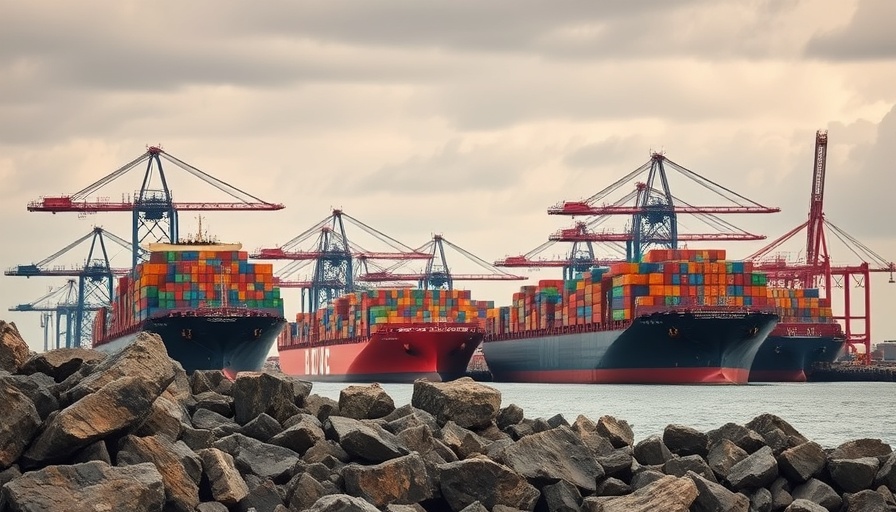
China’s Aggressive Trade Strategy: A Shift in Geopolitical Dynamics
In an unprecedented move, China announced sharp tariffs of 34% on U.S. goods, marking one of the most significant escalations in a long-standing trade war with the United States. This response from Beijing comes on the heels of President Trump implementing historic tariff barriers, the highest seen in over a century. Analysts have voiced concerns that this retaliation could lead to a looming recession, with some forecasting a 60% chance of a global economic downturn by year’s end.
The Market’s Reaction: Fear and Uncertainty on Wall Street
The announcement of new tariffs sent Wall Street reeling, leading to a significant slide in stock prices. The fallout resulted in a staggering loss of $2.4 trillion in U.S. equities in mere hours. Analysts like Stephane Ekolo from Tradition in London highlight that this perceived escalation brings forth the anxiety of a 'tit for tat' situation, indicating that market reactions may continue to reflect uncertainty as both countries pursue their protectionist agendas.
Impact on Global Trade Partners: Canada and Beyond
This trade conflict isn’t just a U.S.-China affair. With Canada and other nations poised to retaliate against U.S. tariffs, the ramifications are ripple effects felt across various economies. By prioritizing national interests, countries are reevaluating their trade agreements and relationships. The interconnectedness of global trade systems means that actions in Washington and Beijing are having consequences far beyond their shores.
Long-term Outlook: Navigating through Economic Turbulence
While Trump’s administration has attempted to downplay the market turbulence, arguing that it represents merely an adjustment phase, the reality remains stark. Investors are nervously watching to see how prolonged tariffs and retaliatory measures could shape future economic landscapes. The potential for recession raises questions about the sustainability of trade wars and their long-term implications on growth and stability.
The Human Cost: How Industries and Workers Are Feeling the Heat
Increased tariffs inevitably trickle down to consumers, affecting everything from prices at the grocery store to job security in various industries. With major companies like Apple and Nvidia, heavily reliant on Chinese manufacturing, facing immediate impacts, workers in these industries may soon feel the repercussions of the escalating trade tensions. The complexity of global supply chains means that decisions made by governments have direct ramifications for everyday people.
Future Predictions: Will Talks Yield Solutions?
As President Trump expressed a willingness to engage in dialogue, particularly around purported trade deals involving technology giants, the question remains whether diplomacy can temper tensions. Historical patterns suggest that negotiations in the backdrop of economic duress often prove challenging, and the motivation for both sides to come to a compromise has not yet materialized. Analysts will be watching closely to determine whether conversations can foster a path back to constructive economic relations.
Conclusion: Understanding the Stakes of the Trade War
The recent developments in the U.S.-China trade conflict should not be underestimated. The implications extend beyond just border tariffs; they signal a shift in international relations and global economic power dynamics. With the stakes higher than ever, keeping an eye on ongoing developments will be crucial for anyone affected by these trade policies, particularly in the business and financial sectors. As this situation unfolds, understanding its wide-ranging effects will be essential for making informed decisions in the future.
 Add Row
Add Row 
 Add
Add 


Write A Comment